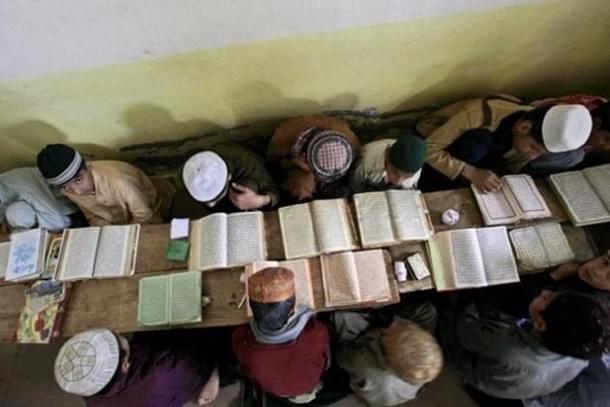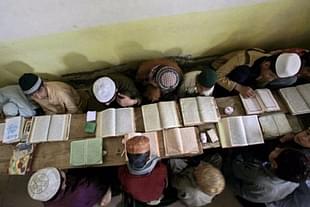News Brief
'Height Of Appeasement By UNICEF, Madrasa Board': NCPCR Chief Seeks UN Probe Into "Radical" Curriculum In Bihar Madrasas
Kuldeep Negi
Aug 18, 2024, 05:13 PM | Updated 05:13 PM IST
Save & read from anywhere!
Bookmark stories for easy access on any device or the Swarajya app.


National Commission for Protection of Child Rights (NCPCR) chairman Priyank Kanoongo on Sunday (18 August) raised serious concerns over the “radical” curriculum in government-funded madrasas of Bihar, as well as the enrolment of Hindu children in these institutions.
Kanoongo also questioned the role of the United Nations Children’s Fund (UNICEF) in drafting this curriculum, denouncing it as the "height of appeasement" by both UNICEF and the Bihar Madrasa Board.
The NCPCR chairman urged the United Nations to conduct an investigation into these activities and called for the dissolution of the Madrasa Board.
In a post on the microblogging platform X, Kanoongo said that textbooks like Talimul Islam, which labels non-Islamic individuals as "kafir" (infidels), are being used in these madrasas.
Kanoongo expressed alarm over Hindu children being reportedly enrolled in these madrasas, noting that the Bihar government has yet to release official figures.
On the question of transferring Hindu children from madrasas to regular schools, the Bihar Madrasa Board reportedly stated that the madrasa curriculum was prepared by UNICEF India, Kanoongo said in his post.
Condemning the alleged move by UNICEF, Kanoongo said that it was the "height of appeasement" by both organisations.
“It is not the UNICEF’s job to create a radical curriculum using money received as donations and grants from governments, under the guise of child protection,” read Kanoongo's post in Hindi.
The NCPCR chairman said that many books included in the prescribed curriculum of these madrasas are published in Pakistan and the research on their content is ongoing.
“A madrasa is not a place for basic education of children in any form, children should study in regular schools and Hindu children should not be in madrasas at all,” Kanoongo said.
Kanoongo emphasised that utilising funds for activities outside the purview of the Right to Education (RTE) Act violates both the Indian Constitution and the United Nations Convention on the Rights of the Child (UNCRC).
He demanded that the United Nations in India conduct a thorough investigation into these activities, and that the UN should monitor it.
Kuldeep is Senior Editor (Newsroom) at Swarajya. He tweets at @kaydnegi.




